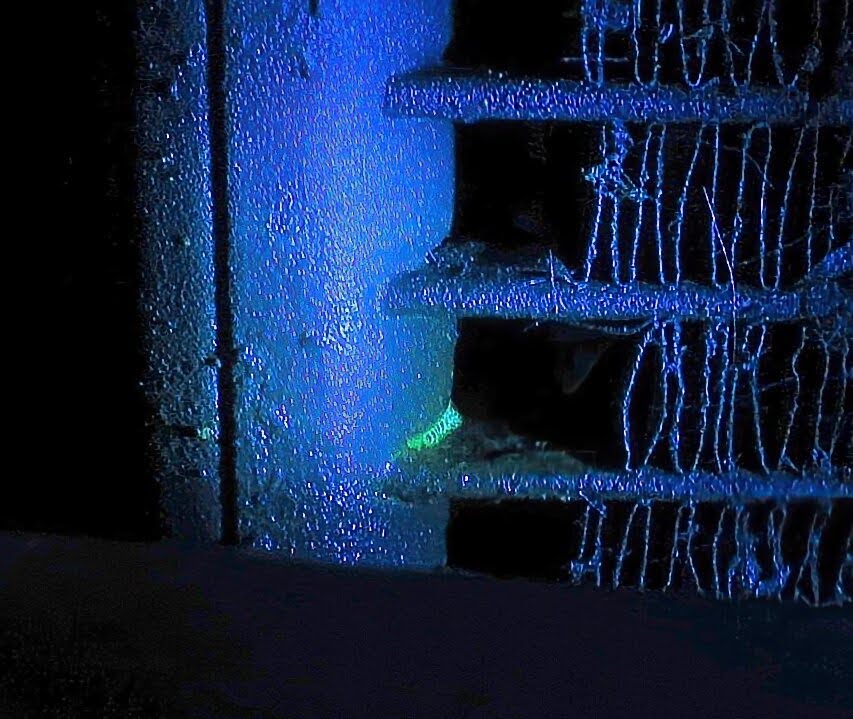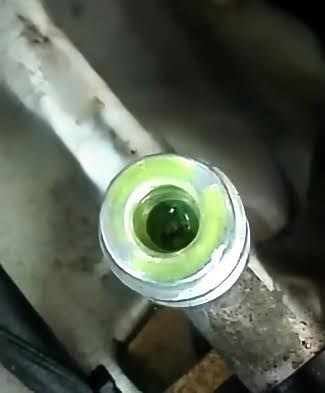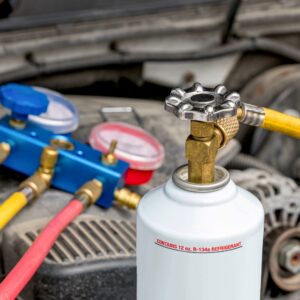What Does a Freon Leak Look Like?

Unlike coolant, refrigerant doesn’t have a distinct color (if there is no dye in the system) or smell. The condenser leak in the photo is visible due to the dye that is in the system. Notice also that the surrounding area is greasy from the oil that has been leaking out along with the refrigerant.
You’ll need to keep a sharp eye out for moisture in the form of an oily residue around A/C components.
Residue On or Around A/C Components
If there’s oily residue, wet stains, or moisture around any of the fittings, hoses, pipes, or any other component, including your A/C compressor, and you notice that the A/C isn’t cooling and the compressor is either short-cycling or doesn’t energize at all, you have a leak.

Why Are Freon Leaks Hard to See?
Refrigerant is colorless and transparent. On top of that, it doesn’t typically have a telltale smell and unless leak detection dye is mixed with the refrigerant (some cars come with this), you won’t see anything except the greasy residue where the refrigerant oil has leaked out along with the refrigerant. The oil travels in the gaseous refrigerant to lubricate the compressor.

Other Signs of a Refrigerant Leak
Not all of the problems caused by a freon leak can be identified visually. It’s important to watch out for the following signs if you’re worried about a refrigerant leak in your vehicle.
A/C Blows Warm Air
One of the biggest indicators that there’s a refrigerant leak in your vehicle is if the air conditioner doesn’t cool the cabin.
Hissing Sounds
Another sign of a refrigerant leak is if you hear a hissing sound. Note that you will only hear this if there is a very large leak, and you’re standing near the system when it’s punctured.
Increased Humidity
Air conditioners do more than release cool air into the cabin. They’re also responsible for circulating air, removing the hot and dense air inside the vehicle, and converting it into colder and more breathable air.
Is It Safe to Drive With a Refrigerant Leak?
Yes, it’s possible to drive with a refrigerant leak, and there are a lot of people who will because they can’t afford to have the leak repaired. It won’t hurt the system unless you’re having it evacuated and recharged so often that the oil is lost and the compressor is destroyed from lack of lubrication.
Any information provided on this Website is for informational purposes only and is not intended to replace consultation with a professional mechanic. The accuracy and timeliness of the information may change from the time of publication.
































